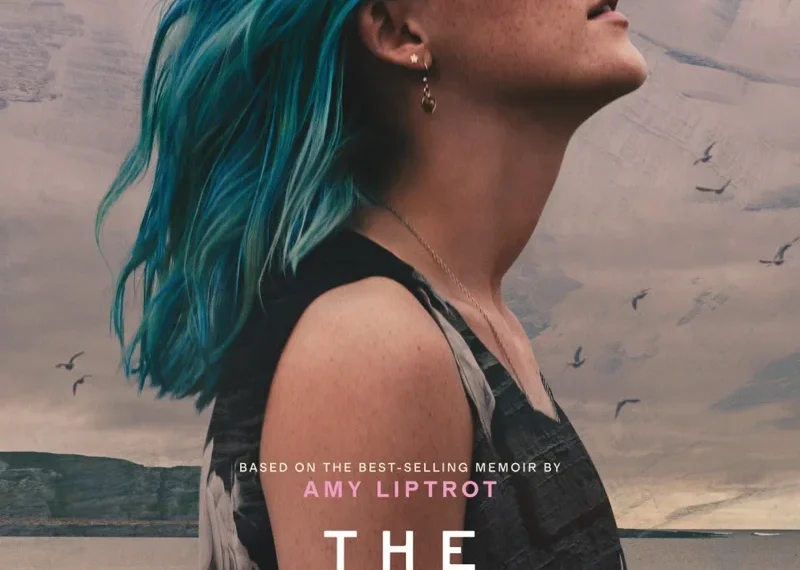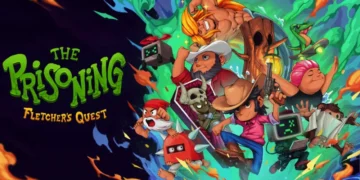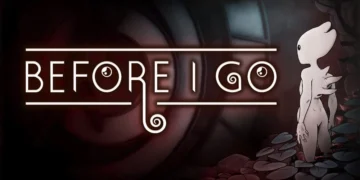Reviewed on February 19th at the 2024 Berlin International Film Festival – Panorama. 117 Mins
Cast: Saoirse Ronan, Lauren Lyle, Stephen Dillane, Saskia Reeves
Genre: Drama
Director: Nora Fingscheidt
In Irish Cinemas: 27th September 2024
Not yet 30 and already boasting four Oscar nominations, Saoirse Ronan could be on the cusp of a fifth with her powerful portrayal of Rona, a troubled alcoholic striving to regain her footing in the windswept solitude of Orkney. The story introduces us to Rona in a dimly lit London bar, where she’s well on her way to drunkenness. As the patrons trickle out, she quietly helps herself to the abandoned drinks around her. The bartender, with gentle persistence, steers her toward the exit. Still, it’s not until a much less forgiving bouncer intervenes that she’s unceremoniously dumped onto the cold pavement, her belongings scattered around her. When a car pulls up and a stranger offers her a ride, there’s an unmistakable sense of foreboding; every instinct tells you this can only end in disaster.
The devastating impact of Rona’s self-destructive behaviour is heartbreakingly evident in the expression of her devoted partner, Daynin, portrayed by Paapa Essiedu, known for his role in “I May Destroy You”. Their portrayal as a young couple full of optimism is immediately convincing, which makes it all the more tragic to witness the downward spiral that drives them apart. The emotional toll is palpable as Rona’s growing cruelty forces Daynin away, culminating in a harrowing scene of shattered glass and spilt blood on their kitchen floor, a stark symbol of their fractured relationship.

Rona’s return to her childhood home is not without its challenges. Her father, a farmer portrayed by Stephen Dillane, has long battled depression linked to his bipolar disorder, a struggle that has cast a shadow over Rona’s life since she was a young girl. This constant tension eventually drove her mother, played by Saskia Reeves, away from the family and into a vibrant religious community that thrives in the Scottish Isles. Overwhelmed by these emotional burdens, Rona flees again, seeking refuge on one of the islands’ sparsely populated outcroppings. Here, amidst the solitude, she reconnects with the music that once fueled her nights in crowded clubs, now blaring through her headphones as she wanders windswept beaches, lost in the rhythms while sifting through the debris washed ashore.

“The Outrun,” adapted by Scottish journalist Amy Liptrot from her candid and courageous memoir, is co-written by German director Nora Fingscheidt. Together, they navigate Liptrot’s deeply personal journey with a delicate yet unrelenting approach. Fingscheidt treats the raw, real-life experiences with a sensitivity that honours the complexity of recovery, all while refusing to shy away from its stark and often painful truths.

The film takes a daring approach, interspersing the journey toward sobriety with narrated segments where Ronan, adopting a convincing Scottish accent, delves into the island’s rich folklore and natural wonders. He eloquently explores subjects ranging from the mythical tales of selkies—creatures said to transform from seals into humans—to the problematic existence of the endangered corncrake bird. She bird becomes a symbolic figure throughout the narrative, sharing the spotlight with the serene seals that drift along the coast. Bathed in the ethereal light of stormy sea spray, the Orkney Islands are portrayed as a place of awe-inspiring beauty. Equally majestic is Ronan, whose powerful presence commands attention.
Overall: 6.5/10


















